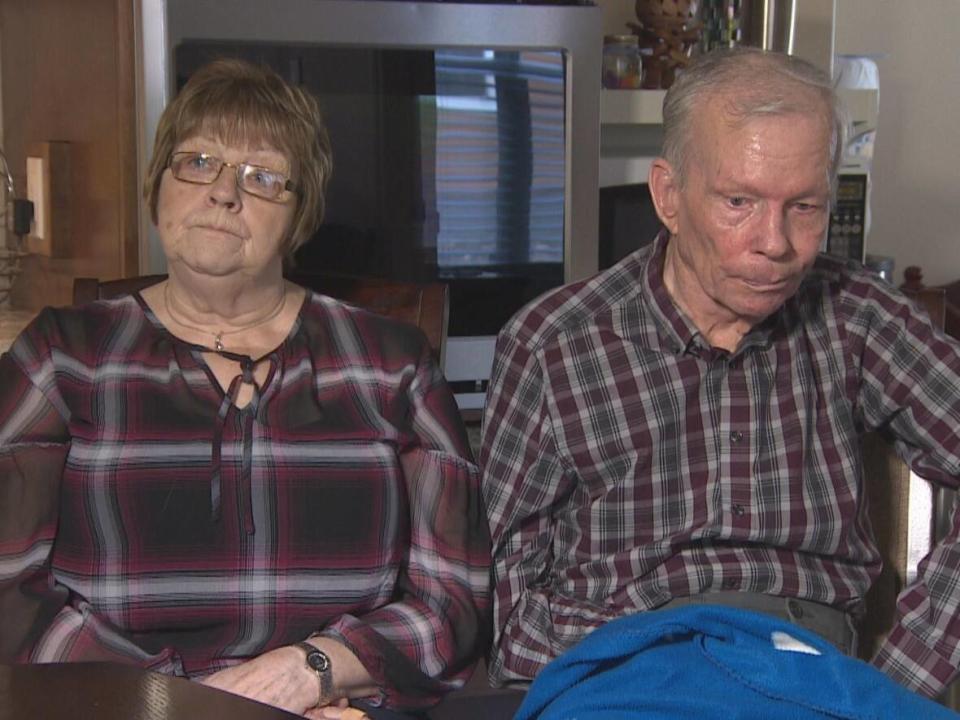Rejection of residency status for former Little Bay Islands couple was unreasonable, judge rules

A Newfoundland and Labrador judge has ordered the provincial government to reconsider a decision that saw two former residents of the resettled town of Little Bay Islands denied relocation voting privileges and more than a quarter-million dollars in compensation for having to give up their house.
Supreme Court Justice Laura Mennie has ruled that a decision by the government four years ago that Gordon and Juanita Hull were not permanent residents of Little Bay Islands was unreasonable and ordered that the matter be reviewed again by the current minister of municipal and provincial affairs, Krista Lynn Howell.
It's a complex situation that also involves two other high-profile politicians.
Justice and Public Safety Minister John Hogan, a lawyer in private practice at the time, was hired in 2018 by the government as an independent reviewer to consider an appeal by the Hulls, while Andrew Parsons, the current minister of industry, energy and technology, was municipal affairs minister.
A partial victory
Mennie's ruling is a partial victory for Gordon and Juanita Hull, who have resided in nearby Springdale for the last six years.
They had argued they should be considered permanent residents of Little Bay Islands under the community relocation policy because they moved to Springdale for medical reasons and continued to own and maintain their home in Little Bay Islands.
Under the provincial policy, residency is not lost if "the individual was temporarily absent for medical reasons substantiated by a doctor's note satisfactory to the minister."

Gordon suffered a stroke nearly two decades ago, and with his health worsening, the couple decided to rent accommodations in Springdale, which offers easier access to medical care.
To be eligible for relocation funding, individuals had to meet the definition of permanent resident for the period from February 2016 to June 2017, a time frame known as the qualification period.
The Hulls did not return to Little Bay Islands after leaving in October 2016, but continued to insure their home and pay the property taxes, electricity and cable, according to court documents.
In an affidavit, the Hulls admitted their absence from Little Bay Islands, and Juanita's driver's licence listed her as a resident of Springdale.
But they also included a letter from their family doctor, confirming they had moved to Springdale for medical reasons.
An appeal is rejected
However, Parsons notified the couple in October 2018 that they were not entitled to receive relocation cash because they did not meet the definition of permanent resident as set out in the relocation policy.
But the Hulls, who had lived in Little Bay Islands since they were born in the late 1940s, and raised three children there, appealed.
"If it were not for the concerns for my husband's failing health, we would be still living in our own home on Little Bay Islands," Juanita Hull wrote in her appeal letter.
But after hearing the appeal, Hogan ruled against the couple.
"(Gordon's) condition will not improve and therefore the Hulls' absence from Little Bay Islands is not temporary. Similarly, (Juanita) Hull cannot avail of the section 1.D.(ii) exception because her absence is also permanent," Hogan wrote.
The Hulls, with the financial backing of their son Jamie, hired Corner Brook lawyer Dean Porter to challenge the matter in court.
Hogan made 'four errors'
In her written decision, Mennie said Hogan "made four errors" in his review of the case and that his conclusion, which was accepted and subsequently became Parsons' decision, "did not meet the standard of reasonableness and must be quashed."
In his report, Hogan wrote that the couple "now reside in Springdale," but Mennie said this assertion was not supported by the facts.
"All that can be gleaned from their comments is that they moved to Springdale to be closer to medical services," Mennie wrote. "A move can be permanent or temporary. The applicants' intention either way could not be ascertained from their affidavits. Nevertheless, the reviewer proceeded on the basis that the applicants' move was permanent without considering any other possible interpretations."
Secondly, by using the adverb "now" in writing his report, said Mennie, it suggested that Hogan was focusing on a timeframe outside the residency qualification period.
"The circumstances of the individual at the time of the decision (i.e. the decision of the independent reviewer) are not relevant," wrote Mennie.
The judge said it was also improper for Hogan to consider the nature of Gordon's medical condition, writing, "Whether Mr. Hull's medical condition was temporary or permanent was not relevant to the issue of his residency status."
Hogan's fourth error, Mennie wrote, relates to an appeal meeting he held with Juanita Hull by phone in the summer of 2018.

In his report, Hogan writes that Hull referred to the move to Springdale during the phone call as a "permanent one," and suggests that may have influenced his ultimate conclusion on residency status. This would be improper, she wrote, since Hogan was not supposed to rely on facts gathered after the date of the department's original decision.
"Given the evidentiary restrictions as indicated by the reviewer, his consideration of anything that was said during the appeal meeting constituted an error," Mennie wrote.
The errors, when considered in their totality, "cannot be characterized as minor in nature," she added.
'I was hurt'
Little Bay Islands was resettled, and public services, including the government-operated ferry, ended in late 2019, less than a year after the town's 55 permanent residents voted overwhelmingly to close their town.
The government paid between $250,000 and $270,000 per permanent household, but Gordon and Juanita were shut out of the whole process.
"I was hurt, and I thought we was discriminated [against]," Juanita told CBC News in December 2019.
Juanita Hull and her son Jamie were contacted by CBC News on Wednesday but they declined comment until the matter is fully resolved.
The case is the latest test for a resettlement program that has seeped into the psyche of generations of Newfoundlanders and Labradorians as the province struggles to provide services to remote and thinly populated communities.
In a statement, a spokesperson with Municipal and Provincial Affairs said the department is reviewing the decision, and cannot provide further comment.

